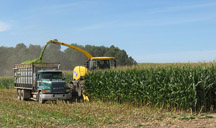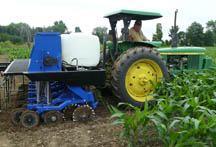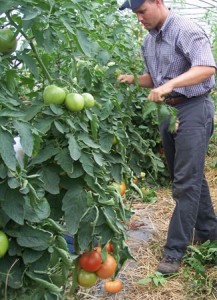
Northern New York – On-farm research trials funded by the farmer-driven Northern New York Agricultural Development Program shows some NNY farms have achieved notably high corn yields. These gains prompted farmers to want to know if the Cornell University nitrogen fertilizer and manure application recommendations derived from corn yield potential calculations need to be revised.
Twelve Northern New York farms teamed with Cornell University researchers, Cornell Cooperative Extension field crop specialists and regional crop consultants to investigate whether higher crop productivity means more nitrogen needs to be supplied to replace that taken up by the corn or are new corn varieties simply able to make better use of the nitrogen already in the soil?

